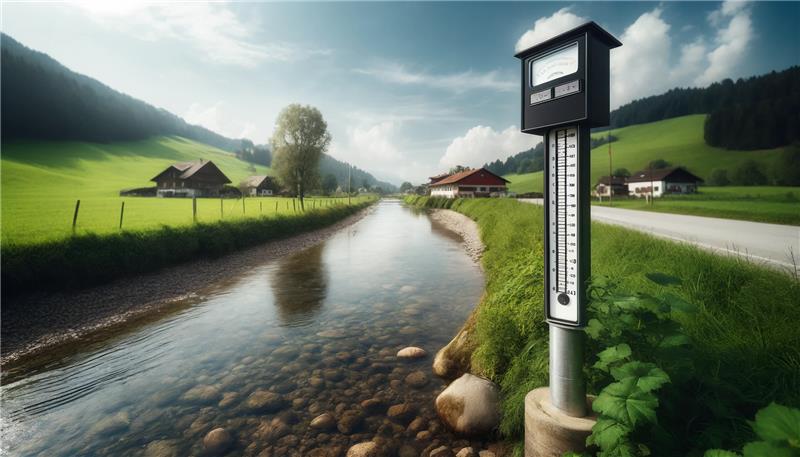

The production of disposable packaging for out-of-home food consumption in Germany pollutes the climate with over 400,000 tons of CO2 every year. The Cologne company Vytal would like to counteract this. Four years after it was founded, 6,500 partners from the catering industry and 450,000 registered users are already relying on Vytal's deposit-free reusable system. This significantly reduces resource consumption.
Hour after hour, people in Germany consume more than half a million food boxes, meal trays and pizza boxes when eating away from home. According to information from the German Environmental Aid (DUH), which refers to information from the Society for Packaging Market Research, more than 20,000 tons of plastic, over 6,000 tons of aluminum and almost 93,000 tons of cardboard are used to produce this packaging every year, mainly new material. And another number: According to DUH, the production of this disposable packaging pollutes the climate with 416,000 tons of CO2 every year. “This is a huge waste of resources,” says Dr. Tim Breker. He knows this from his own experience, because when the doctor of psychology still worked in a management consultancy, he was always annoyed during his lunch breaks by the disposable packaging in which food was usually served. This happened to his colleagues Sven Witthoeft and Dr. Fabian Barthel as well. So the three left their well-paid jobs and founded their own company in Cologne: VYTAL Global GmbH. The business idea: a deposit-free reusable system for take-out food and drinks. “We want to replace disposables and make reusables the standard for to-go consumption and delivery meals,” says Breker, summing up the three founders’ claim.

“For the Vytal standard bowl, from the tenth use onwards, the ecological balance of a reusable container is better than that of a comparable disposable container”
At the beginning there was a lot of improvisation. The young entrepreneurs purchased reusable containers from a department store and took them to local restaurants in Cologne to convince them of the reusable idea. There was initially no system behind it. That changed quickly because they received a lot of positive feedback, as Breker reports. The system that he and his co-founders developed is reminiscent of libraries: interested parties deposit their data once as security in a specially developed app and can then use the Vytal containers at all participating catering establishments without paying a deposit. You essentially borrow the containers and only have to return them after a maximum of 14 days. This in turn applies to all partners, so you don't have to go to the company where you last bought something to eat or drink. Each container has an individual QR code that is scanned at the respective issuing and return point. Around 20 different Vytal containers are now in use, including our own developments. In addition, at the request of individual catering establishments, Vytal also has containers manufactured according to their individual wishes. The effect: “For the Vytal standard tray, from the tenth use onwards, the ecological balance of a reusable container is better than that of a comparable disposable container,” explains Breker and adds: “Our containers can generally be used over 200 times.” In the four years since When it was founded in 2019, Vytal was able to win over 6,500 partners from the catering industry for the reusable system. Not just in Germany, but now in ten other countries. By the end of April 2023, over 450,000 users had registered.
Breker and his co-founder Sven Witthoeft are from Cologne, so it made sense to found the company there. Nevertheless, the idea of starting in London first arose. “The packaging waste problem there is much bigger than here,” says Breker. They still decided on Cologne and North Rhine-Westphalia. “Simply because it was easier to start where the topic of reusable products was already better anchored in people’s minds.” In Cologne and Düsseldorf, many catering establishments quickly became open to the Vytal concept. “There are also many retail groups here that play an important role for us, for example with the salad counters in numerous supermarket branches,” explains Breker. But the founders benefited from the NRW location in other ways. They initially started with their own funds in 2019, but they were quickly used up. With the NRW start-up grant, which two of them received, and the EXIST start-up grant, which they received through the Gateway Excellence Start-up Center at the University of Cologne, they were able to advance their company's development. They later found business angels and other investors, also in North Rhine-Westphalia. And last but not least, NRW plays an important role for Vytal as a skilled worker base. “NRW offers good access to talent,” says Breker. His company now has 70 employees.


The publication series “Transformation through Innovation” is intended to illustrate how companies in North Rhine-Westphalia have been able to write successful innovation stories thanks to the framework conditions created by the state of North Rhine-Westphalia.
Are you interested in being featured in a future edition?
Then contact us with your request at: